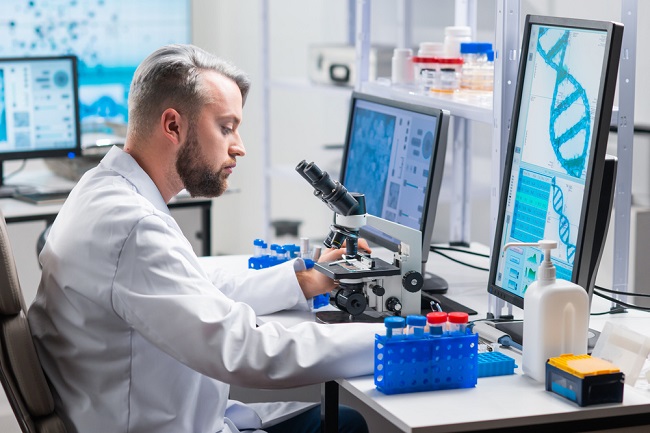Pharmaceuticals are a vital part of the healthcare industry. They help improve the quality of drugs and services they provide, as well as discover new drugs to cure deadly and complicated diseases. That said, it’s crucial to streamline their services to ensure that every process they do has little to no errors. But how can they do that? Well, it is where artificial intelligence (AI) comes in.
Artificial intelligence is a cutting-edge technology that has revolutionized many industries, and the pharma industry is no exception. How? This article will explain the five ways AI can improve the pharma industry.
-
Automating Drug Discovery
The pharmaceutical industry is under enormous pressure to develop new drugs quickly and efficiently. Unfortunately, the drug discovery process is lengthy and complex, involving screening many molecules in the hopes of finding a few that show promise.
AI has recently emerged as a powerful tool for automating this process. By applying machine learning (ML) algorithms to data from previous experiments, AI can identify patterns that scientists might miss. It can dramatically speed up the drug discovery process, which then helps to develop new treatments for many diseases.
Coming up with an AI system that can screen molecules for potential therapeutic activity is one thing, and thanks to technological advancements, building such a system is not at all challenging. By using the recommended site, you’ll find it easy to establish a system that the scientific community will accept.
-
Predicting When Demand For Drugs Will Spike
Operating a pharmaceutical is the same as managing any other business: you need the right and ample supplies when demand is high, and AI can help ensure this. By analyzing historical data and trends, AI can predict when demand for specific drugs will spike and alert the company so they can prepare. It helps ensure patients get the care they need but also helps avoid costly inventory issues.
AI can also monitor social media for early warning signs of a potential outbreak. For example, if there is an uptick in mentions of the flu on social media, AI can analyze this data and alert the company so they can begin production of flu medication sooner. This way, when a flu outbreak hits a specific locality, drug supplies are sufficient to aid the needs of the community.
-
Improving Clinical Trials
The pharma industry carries the challenge of one of the most challenging and vital jobs-finding new treatments for diseases. Specifically, clinical trials play a crucial role in finding cures for incurable diseases today. They are essential for approving new drugs and treatments by regulatory bodies before rolling them out for public use.
Clinical trials have recently become more complex and expensive, with the average cost exceeding USD$1 billion. The number of people willing to participate in clinical trials has also been declining steadily. Only about 20% of those eligible take part in these studies. A significant reason why fewer people want to partake in clinical trials is the decreasing success rate of drug candidates, which makes others not risk their lives.

To mitigate these problems, AI can be beneficial. It can identify patients most likely to respond positively to a particular treatment. It would make clinical trials more efficient by eliminating human error and streamlining the entire clinical trial process.
-
Improving Patient Outcomes
Identifying treatments that are more likely to work for individual patients can be difficult and time-consuming. However, by using machine learning algorithms to analyze the patient’s medical history, symptoms, and other factors, AI can help doctors choose the best course of treatment much more quickly. It can lead to better patient outcomes and reduced healthcare costs.
In addition, AI can also help monitor patients after they have been discharged from the hospital. By tracking their vital signs and other health data, AI can alert doctors if a patient’s condition deteriorates, allowing them to intervene before it becomes severe.
-
Reducing Cost
While the drug discovery process is essential, it is also expensive, which makes the price of new drugs rise. According to a study by the IMS Institute for Healthcare Informatics, the cost of developing a new drug has increased from USD$648 million to over USD$1 billion from 2013 to 2022. That is because drug development is lengthy and complicated, with many moving parts.
However, AI has the potential to help lower the cost of developing new drugs. One way it can do this is by helping to speed up the drug discovery process. In addition, AI can help identify new drug targets and predict how well a drug will work in humans before it undergoes clinical trials.
Another way AI can help reduce the cost of developing new drugs is by assisting pharmaceutical companies to use their data better. For example, data from clinical trials can help train machine learning algorithms and help predict which patients are most likely to respond positively to a specific drug. This information can help fine-tune clinical trials to be more efficient and cost-effective.
Conclusion
Technological advancements, particularly AI, are changing various industries for the better. It helps them streamline their processes to save on costs without sacrificing product quality. The pharma industry is no different. From improving clinical trials to creating more personalized drugs, AI can help the pharma industry in many ways. Therefore, it’s no surprise that AI is being adopted by pharma companies worldwide. Join this growing number so you can benefit from it too.




















